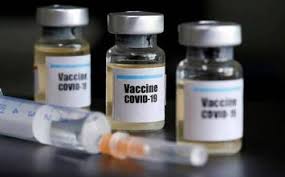WASHINGTON, Jan 28: The IMF has warned that the inequitable distribution of COVID-19 vaccines risks exacerbating financial vulnerabilities, especially for frontier market economies, even though their approval and rollout have boosted expectations of a global recovery and lifted risk asset prices.
In its Global Financial Stability update released on Wednesday, the International Monetary Fund underlined that until the coronavirus vaccines are widely available, the market rally and the economic recovery remain predicated on continued monetary and fiscal policy support.
“Inequitable distribution of vaccines risks exacerbating financial vulnerabilities, especially for frontier market economies,” it said.
An ongoing rebound of portfolio flows provides better financing options for emerging market economies facing large rollover needs in 2021, it said.
Approval and rollout of vaccines have boosted expectations of a global recovery and lifted risk asset prices, despite rising COVID-19 cases and softening economic activity in late 2020, the report noted.
Policy accommodation has mitigated liquidity strains so far, but solvency pressures may resurface in the near future, especially in riskier segments of credit markets and sectors hit hard by the pandemic, the IMF said, adding that credit concerns and profitability challenges in the low-interest-rate environment may weigh on banks’ ability and willingness to lend in the future.
“Policy-makers should continue to provide support until a sustainable recovery takes hold: under-delivery may jeopardise the healing of the global economy. However, with investors betting on a persistent policy backstop and a sense of complacency permeating markets as asset valuations rise further, policymakers should be cognizant of the risks of a market correction,” IMF said.
With monetary policy anticipated to remain accommodative in coming years, policy-makers should address rising vulnerabilities to avoid putting growth at risk in the medium term, it said.
Tobias Adrian, Director of the IMF’s Monetary and Capital Markets Department, said that an absolute end to this pandemic is going to be a medical solution.
“So, the vaccine news was a very good one and it has driven up valuations. Furthermore, throughout the year, of course, the monetary policy supported by the major central banks, but also by emerging markets, central banks have supported asset prices by easing financial conditions,” he said.
“Now we are in a place where the easiness of financial conditions is helping economic activity, is helping countries and corporations to issue debt. But it’s also accompanied by a run-up in asset prices, particularly in some sectors. And we do worry that there are stretched valuations in some sectors. For example, in the tech sector, we’re detecting some frothiness as, as you point out. And there’s certainly a risk of a market correction here,” Adrian said.
Even though there was a very sharp economic contraction, the support on the monetary side and the fiscal side has contained the bankruptcy so far.
“So the banks are in good shape. That is extremely important from a financial stability point of view. On the market side, of course, there is the worry that we could see for the sell offs,” he said.
Last year there was a very sharp selloff that led to central banks stepping in and really backstopping a very broad segment on financial markets.
“We could certainly see further sell offs at some point, at least in some segments of the market,” he said, adding that this might directly impact financial stability in an adverse way. But it could lead to a tightening of financial conditions.
Fabio Natalucci, Deputy Director of the Monetary and Capital Markets Department said uneven distribution of vaccines create this risk of asynchronous recovery.
“There’s a health situation for first of all, that needs to be addressed. There’s also then an issue in terms of recovery,” he said. If there is asynchronous recovery, countries lag behind, they could lose market access, financial conditions tighten.
“And then you would see really an increase in poverty, you could see an increasing inequality. So that’s why it’s important that we tackle this as a global issue, at the global level, and there is an equitable distribution of vaccines across the globe,” he said.
The total number of global coronavirus cases has topped 100.8 million while the deaths have reached to more than 2.17 million, according to the Johns Hopkins University. (PTI)
Home International Inequitable distribution of coronavirus vaccines risks exacerbating financial vulnerabilities: IMF


